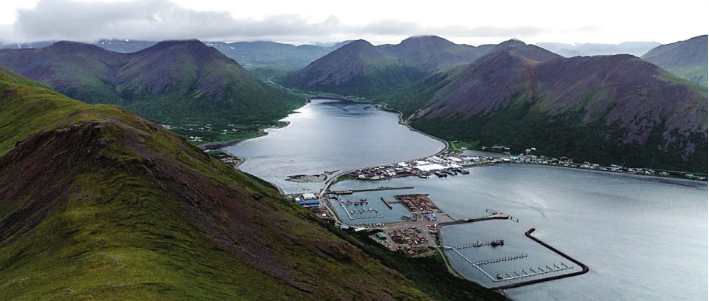A decision by the US Fish and Wildlife Service notwithstanding, proponents of a road to the Aleutian fishing village of King Cove will have another chance to plead their case for an emergency road to the all-weather airport at Cold Bay.
The federal agency recently opposed a land exchange approved by Congress in 2009, one that would add 56,000 acres of state and tribal lands to the Izembek National Wildlife Refuge on the Alaska Peninsula, while allowing the community of King Cove to build a single lane gravel road through 206 acres of the refuge, to the Cold Bay airport. Several environmental groups, citing habitat needs of waterfowl, have raised strong opposition to the road.
Residents of King Cove, many of them employed in commercial fisheries, note that even when several thousand US troops were stationed in the area now comprising the wildlife refuge during World War Two, the soldiers and their vehicles did no lasting damage to waterfowl habitat.
An entourage from King Cove is heading for Washington DC next week to meet with Interior Secretary Ken Salazar, to talk about the need for the road so people with medical emergencies can be flown from Cold Bay to a hospital in Anchorage.
Given the weather in King Cove, where Peter Pan Seafoods has a large year-round plant, small aircraft are often unable to take off or land there, leaving patients with a medical emergency with only one possible option- traveling over rough seas for two to three hours on a fishing vessel to reach the Cold Bay airport.
A road between the two communities would make the trip shorter and less dangerous. Over the past 30 years a number of deaths have been attributed to the lack of road access to the Cold Bay airport, including a 1981 plane crash during an attempted medical evacuation that killed all four people onboard.
One of the latest medical emergencies at King Cove occurred in early February and involved a worker at the Peter Pan Seafoods plant suffering a heart attack who had to be transported to Cold Bay by boat. The trip took more than two hours.
Now King Cove residents want to state their case directly to Interior Secretary Salazar, hoping to convince him that the public interest determination authority he has should be used to approve the land exchange, so the road can be built.



